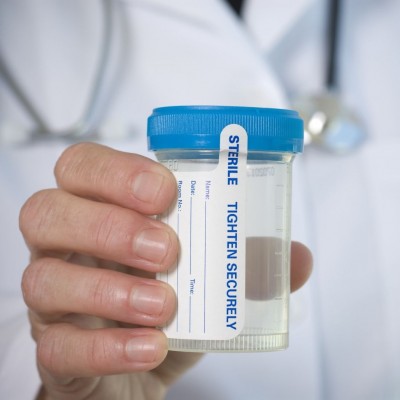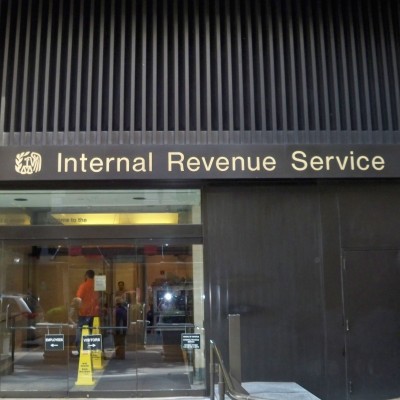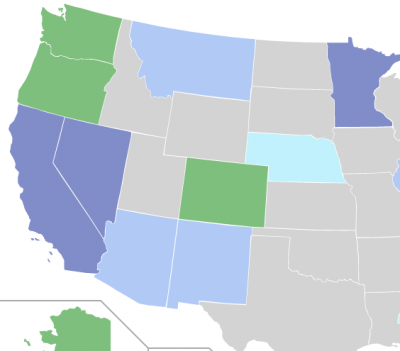Oregon Legislature Furthers Urban Rural Divide with Marijuana and Self-Serve Gas Laws
Friday, June 19, 2015

During the current session, the legislature has already passed one measure that creates a different standard for Oregon’s smaller counties. The measure, House Bill 3011, will allow self-service gasoline in rural Oregon. A second measure, HB 3400 appears to have cleared hurdles needed to get the votes to be passed soon as well. The measure will make it easier for rural Oregonian cities and counties to prohibit the sale of recreational marijuana, despite a statewide vote permitting it. The map below shows how the laws will differ in each of Oregon’s 36 counties.

Rural Oregonians Access to Self-Service Gasoline Appears Imminent
While the concerns that prompted Oregon to ban self-service gasoline in 1951 have long since been gone, the state’s laws have not kept up. While the justification for continuing this practice statewide is slim at best, the legislature seems to have thrown a bone to rural interests in passing House Bill 3011 by giving them a carve out. Chalk up a win for Senate Minority Leader Ted Ferrioli, an affable conservative who has toiled in the trenches of being in the minority party long enough to score wins along the way.
The self-service measure grants authority to counties with less than 40,000 in population to allow self-service, strangely enough, only between 6pm-6am when nobody is present. The arguments in favor of HB 3011 seem to focus on the negative economic impact of requiring an attendant pump gas, but are silent when it comes to why the same is not true in more populated areas, where stations also close at during the same time frame because it is not economical to remain open.
Supporters of the measure say it raises the cost of gas 3-5% to employ attendants yet HB 3011 offers no assurances that counties that may allow self-service will lower their prices accordingly. In fact, if you look at average gas prices, Oregon is currently nearly 4 cents cheaper per gallon than in Washington, where drivers pump their own gas.
Perhaps the strongest argument in continuing a ban on self-service gasoline is tied back to the jobs it creates. This measure surely has attendants on edge. Jack Morton, a fuel attendant in Enterprise recently said in testimony that “this bill will cost jobs and income in already stressed lower populated counties,” an apt point Minority Leader Ted Ferrioli, himself a rural legislator, seems to be forgetting.

Déjà vu All Over Again
When prohibition of alcohol was repealed in America, states were given great leeway in implementing the re-legalization of alcohol creating a patchwork maze of laws. While marijuana is still illegal at the federal level, the state of Oregon seems to be taking comparable steps, allowing more conservative communities to opt-out of selling pot.
HB 3400 will implement last year’s Ballot Measure 91, legalizing recreational marijuana in Oregon. Oregon voters approved a measure that would require 10% of the electorate sign a petition and a vote of the people occur in order to implement a local ban. HB 3400 dismantles that. It makes it easier for local jurisdictions to ban both medical and recreational marijuana. If a jurisdiction voted less than 45% in support of the ballot measure, no public vote is required. If it was passed (or failed by less than 55%) majority, a ban must go to a vote, though the 10% requirement is removed.
As late as last week, there seemed to be consensus for the implementation measure without a local carve out. At that point Senate Minority Leader Ted Ferrioli insisted a provision that made it easier to opt-out be included.
Anthony Johnson, the Chief Sponsor of Measure 91 is not supportive of this provision, though he may well lose this battle. Johnson, speaking on behalf of New Approach Oregon, the organization that helped pass the ballot measure said, “we don’t support changes to make it easier for local jurisdictions to ban marijuana sales. Measure 91 was laid out in line with how to ban alcohol and we think that's the appropriate way. This is going to exacerbate problems with unregulated or illicit market.”
However, industry insider Casey Houlihan suggest this provision may well have a silver lining, saying “cities and counties have a playbook to essentially ban these establishments anyway. Because of federal law, they have ample tools in their tool box.” Adding “what this portion of the measure does is it prevents lots of fighting and litigation that could be far more harmful to cannabis legalization efforts in the state, and gives municipal leaders the chance to craft local retail cannabis policy on their own terms.”
Collectively, these measures are a coup of sorts for those who’ve wanted more localized control on issues that pass on a statewide ballot. For many years those efforts have been swatted down. So long as Senator Ferrioli continues to amass clout, he will ensure laws continue to be a patchwork laws that impact folks differently based on where you live.
As you can see from the map, this is East versus West lining up to live under very different rules from one another. If you overlay a map of Senator Ferrioli’s district, you see that all but a fraction of one of the many counties in his district benefit from both measures.
Related Slideshow: Ten Things to Know About Marijuana Legalization in Oregon
Here are ten things you need to know now that pot is legal in Oregon.
Related Articles
- Recreational Marijuana Regulation Policy Likely to Be Stricter Than Medical
- Price Fluctuations Threaten to Drive Marijuana Growers Out of Business
- Portland City Council Discusses Marijuana Tax
- OLCC Requests Budget for Recreational Marijuana Program
- Senior Citizens Support Legal Weed in Oregon
- “Uber for Weed”: Could a Pot Delivery Service Happen in Oregon?
























 Delivered Free Every
Delivered Free Every
Follow us on Pinterest Google + Facebook Twitter See It Read It